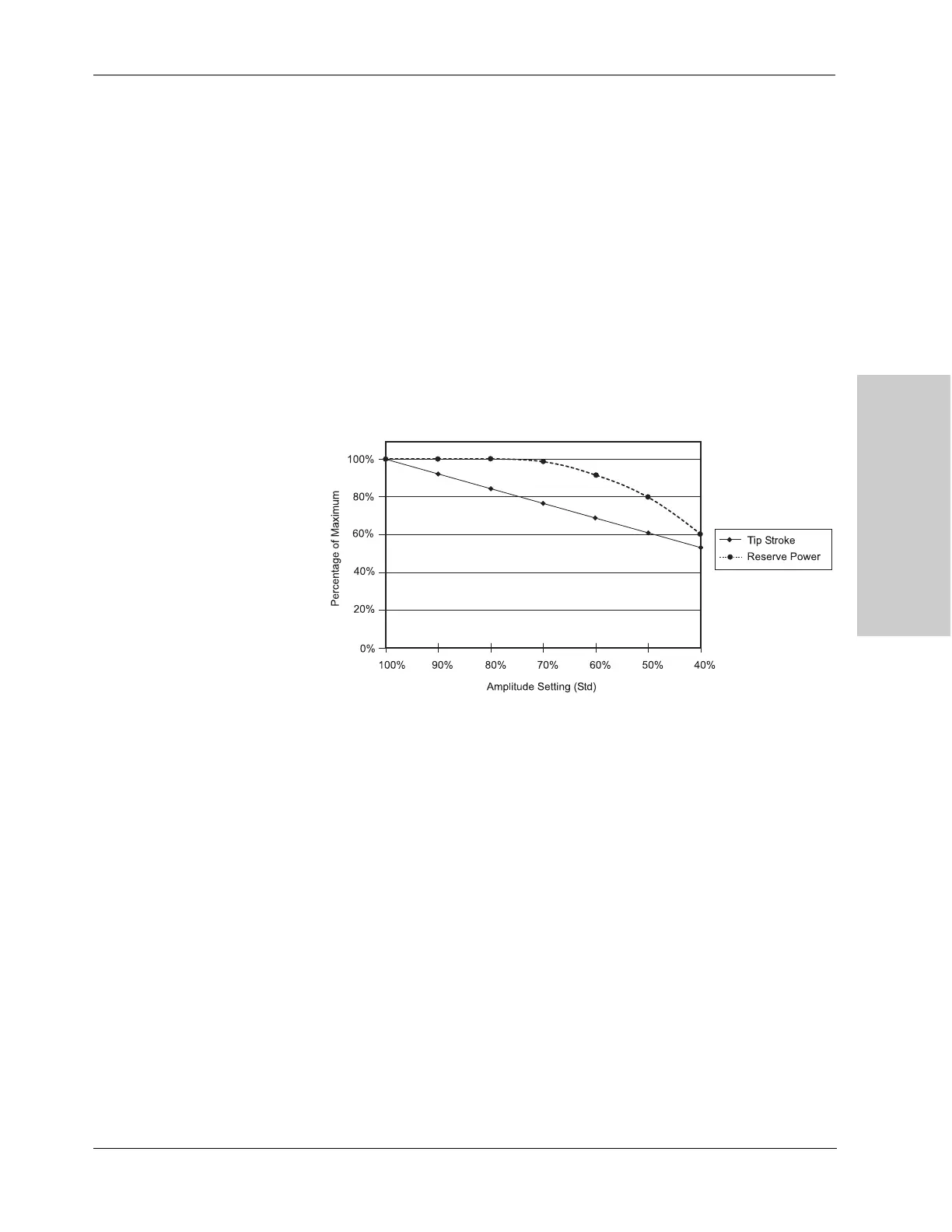How the TissueSelect Feature Works
Principles of Operation
CUSA EXcel Ultrasonic Surgical Aspirator System Service Manual 6-9
A Common Misunderstanding of the Amplitude Setting
It has been common practice to decrease the amplitude setting when encountering
critical structures. The reasoning behind this practice is that the lower amplitude
setting results in slower fragmentation rate and greater selectivity, thus greater
control to help avoid damage when dissecting near the critical structures. Look at
this reasoning more carefully.
True: Decreasing the amplitude setting also decreases the fragmentation rate.
True: Because the fragmentation rate is slower, the surgeon has a little more time
to move the tip away from a critical structure before damaging it; therefore, the
surgeon seems to have greater selectivity and control.
False
: The surgeon gains greater selectivity, thus greater control and precision
when dissecting near critical structures.
Why does the decrease in amplitude not give greater selectivity and control?
Decreasing the amplitude does not greatly affect the reserve power.
Figure 6-3.
Reserve power vs. amplitude setting
Decreasing the amplitude leaves plenty of reserve power.
When the tip contacts critical structures, it still has more than enough power to
fragment them if the surgeon applies pressure or prolongs the tip-tissue contact.
Therefore, decreasing the amplitude setting gives the following results:
• Reduced fragmentation ability
• Reduced fragmentation rate
• Little increase in selectivity
• Little reduction in reserve power.

